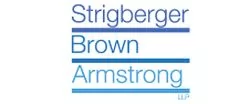In Swampillai v. Royal & Sun Alliance Insurance Company of Canada, the Court dealt with the enforceability of a full and final release executed by the Plaintiff. A claim was commenced for long term disability (“LTD”) benefits. The action named the Plaintiff’s former employer, Royal and Sun Alliance Insurance Company of Canada (“RSA”), and Sun Life Assurance Company (“Sun Life”) which administered the LTD benefits that RSA provided employees.
In response, the Defendants argued that the Plaintiff had executed a full and final release which had included LTD benefits. The Plaintiff amended his claim to plead the doctrine of unconscionability and argued the release should be set aside. The Defendants brought summary judgment motions on the basis that the release was binding and enforceable. The summary judgment motions were dismissed. The Court found that the release signed by the Plaintiff was unconscionable and ought to be set aside.
The background facts were important. The Plaintiff had been employed as a distribution clerk. After several years of working in this physically demanding job, the Plaintiff went on disability. About three months before the two year mark (where entitlement to LTD changed to the “any occupation” test), Sun Life wrote to the Plaintiff and advised that (1) he did not meet the test for entitlement; (2) benefits would be terminated at the two year mark; (3) the Plaintiff could appeal the decision; and, (4) the appeal period expired three months after the benefits were terminated. The Plaintiff appealed the decision but Sun Life maintained its denial.
By separate letter (about one month before the test for LTD benefits changed), RSA advised that the Plaintiff’s employment would be terminated at the same time as the LTD benefits were to be terminated. A severance package was offered which would require the Plaintiff to also execute a full and final release. The release provided that it related to “benefit coverage under the Company’s applicable plans and/or policies ... including short term or long term disability benefits ...” The Plaintiff’s evidence was that he did not believe the offer had anything to do with Sun Life or his LTD benefits.
In determining whether the release was unconscionable, reference was made to the Court of Appeal’s decision in Titus v. William F. Cooke Enterprises Inc., (2007 ONCA 573) which sets out the four elements that must be satisfied:
- A grossly unfair and improvident transaction; and,
- Victim’s lack of independent legal advice or other suitable advice; and,
- Overwhelming imbalance in bargaining power caused by the victim’s ignorance of business, illiteracy, ignorance of the language of the bargain, blindness, deafness, illness, senility, or other similar disability; and,
- Other party knowingly taking advantage of this vulnerability.
With respect to the first element, the Court found that it was clear that in the period just before the Plaintiff was notified by RSA that his employment would be terminated, he was actively engaged with Sun Life in pursuing his claim for LTD benefits. He had provided medical evidence in support of his claim and retained Counsel because he did not agree with Sun Life’s decision. There was no dispute that this claim, if successful, would have substantial value which would have been known by both Defendants. Further, (1) Sun Life was not aware of the release until after the litigation commenced; and, (2) RSA acknowledged that its severance offer did not include any money with respect to the LTD claim. In these circumstances, the Court concluded that the settlement for the LTD claim as part of the severance settlement was grossly unfair and clearly improvident.
As to the second element, the Court found that the Plaintiff did not receive legal advice or any professional advice regarding the effect of the proposed settlement terms, including the release of his LTD claim. The Court concluded, particularly given that RSA knew the Plaintiff was appealing the denial of the LTD claim and RSA did not mention the impact on the LTD denial during the course of negotiations, that it was reasonable for the Plaintiff not to have obtained legal advice.
On the third element, the Court found that the Plaintiff was (1) in a vulnerable financial position; and (2) was suffering from health impairments that were sufficiently severe that he had qualified for LTD benefits. The Court concluded that the general vulnerability of the Plaintiff at the material time was not diminished by other circumstances. The Plaintiff did not know his options regarding the LTD claim. The Court concluded that there was an overwhelming imbalance in bargaining power.
Finally, the Court considered whether RSA knowingly took advantage of the Plaintiff’s vulnerability. The Court found that RSA offered the Plaintiff a severance package, but did not alert him to the fact that it required him to release his LTD claim. By failing to do so, RSA knowingly took advantage of the Plaintiff’s vulnerability.
The Court was satisfied that all four elements were established. The release was unconscionable and was set aside. This decision serves as a cautionary tale for parties negotiating a full and final settlement. Particularly where the Plaintiff is in a vulnerable position (which most people on long-term disability will be), it is imperative that the Plaintiff know what benefits they are resolving by signing a full and final release. Otherwise, there is a risk that the release will not be enforceable.
See Swampillai v. Royal & Sun Alliance Insurance Company of Canada, 2018 ONSC 4023 (CanLII)
The content of this article is intended to provide a general guide to the subject matter. Specialist advice should be sought about your specific circumstances.

